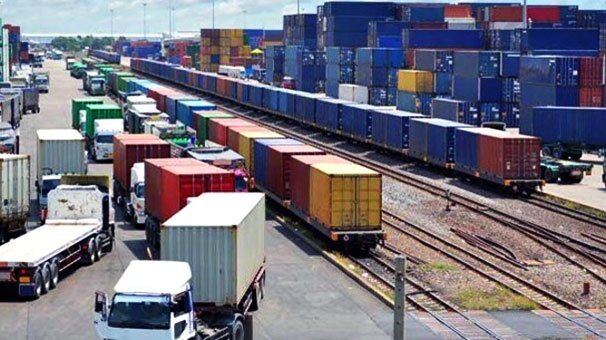Russia sends 1st transit train through Iran to Saudi Arabia

TEHRAN – A Russian freight train has left the country for Saudi Arabia passing through Iran for the first time, IRIB reported.
According to the head of the Islamic Republic of Iran Customs Administration (IRISL), the mentioned transit cargo entered Iran through the Incheh-Boroun border crossing with Turkmenistan heading to Bandar Abbas in the south to be shipped to Saudi Arabia.
The train, which has 36 containers, passes Iran as part of the International North-South Transport Corridor (INSTC), Miad Salehi said.
It is estimated that the new route would reduce the delivery time by several days, the official added.
The cost of transit through the INSTC has been decreased by almost half as a result of the reduction of the customs tariff, the official underlined.
Nearly 250 billion dollars of Indian, Chinese, and East Asian products are expected to be transported to Europe through the mentioned corridor.
The founding member states of the International North-South Transport Corridor, namely Iran, Russia, and India, gathered for the third time in Tehran in early July, to discuss solutions for promoting freight transit through the newly developed international corridor.
The event, dubbed “Iran Rah” was attended by senior officials from the three countries including Iranian Transport and Urban Development Minister Mehrdad Bazrpash, Head of Iran's Ports and Maritime Organization (PMO) Ali-Akbar Safaei, Deputy National Security Advisor of India Vikram Misri, and Senior Aide to the president of the Russian Federation Igor Yevgenyevich Levitin.
Speaking at the meeting, Bazrpash underlined some of the Islamic Republic’s major principles regarding the promotion of INSTC including multilateralism, partnership, transit neighborhood, networking, facilitation of trade, and intelligent and technological development of transit, and called for maximum collaboration for the development of exchanges through the INSTC.
Further in the meeting, PMO Head Ali-Akbar Safaei mentioned some of the advantages of transit through Iran for the countries in the regions and said: “Iran's joining the Shanghai Cooperation Organization and the Eurasian Economic Union will provide unique opportunities to the country’s trade partners, and the Islamic Republic is determined to remove all its tariff and non-tariff barriers in the shortest possible time.”
The main rationale for these trilateral meetings is to promote freight transit between India and Russia and other Persian Gulf and the Caspian Sea countries, Safaei said.
Elsewhere in the gathering, Misri emphasized India’s determination to cooperate with Iran and Russia for completing the INSTC, saying: “India has been a participant in various initiatives and projects regarding the north-south corridor and has always been committed to providing its resources in the best way to the implementers so that this corridor is developed in the best way possible.”
Lavitin for his part called the INSTC a humanitarian corridor and asked the countries of the region to join this corridor to achieve its goals.
He underlined the definition of a single policy for trade through this corridor as the most important requirement for the development of trade in this initiative and added: “The main issue discussed in this meeting is defining the same framework and reaching a common understanding for all the business operators that are willing to use this route.”
Established in 2000 by Iran, Russia, and India, this 7,200-km-long INSTC works as a multi-modal network of ship, rail, and road routes for moving freight between India, Iran, Azerbaijan, Russia, Central Asia, and Europe.
Geographically, Iran's territory, particularly the Chabahar port, is very strategic for the activation of the INSTC in linking India to Russia.
The INSTC is also an important transport agenda that is expected to considerably boost the transit and trade of Iran and Russia with the countries of the Caspian Sea and the Persian Gulf.
EF/MA
Leave a Comment